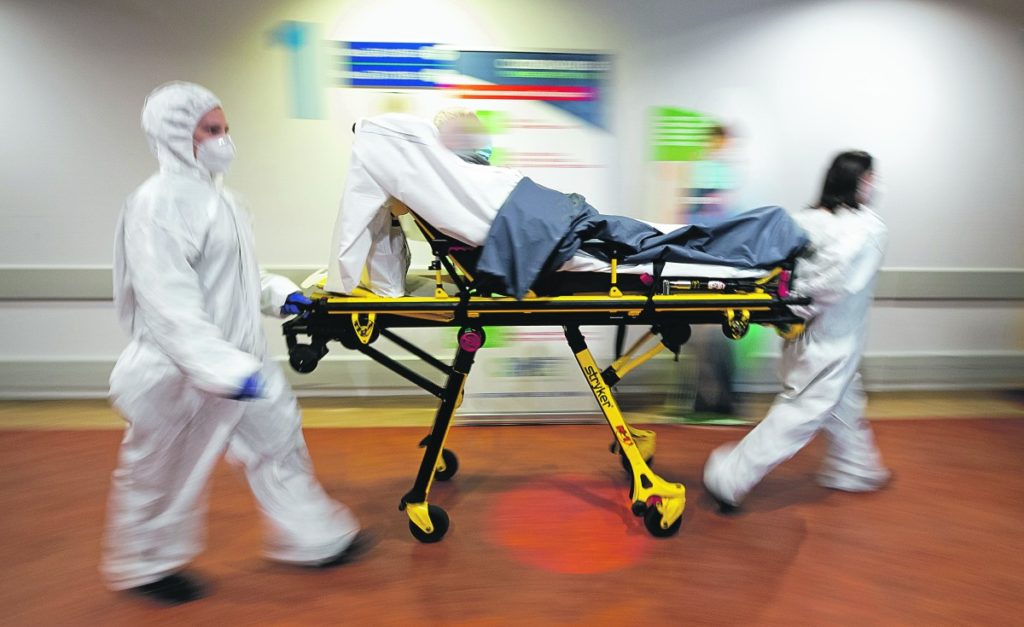Vaccinated people are 14 times less likely to end up in intensive care following a Covid-19 infection than those that have not been vaccinated, according to data from the last two weeks.
Despite the rise in the number of people testing positive for coronavirus – currently around 7,000 a day – as well as in the number of hospitalisations and deaths, the vaccines are proving their worth, Corona Commissioner Pedro Facon said during the weekly Sciensano and Crisis Centre press briefing.
"Relatively speaking, ICU admissions are 14 times less common among vaccinated people aged between 18 and 64," he said, adding that this shows that the vaccines protect well – "especially against serious illness and hospitalisation."
Vaccinated people in this age group are also nine times less likely to be hospitalised as a result of an infection. In absolute numbers, there are more vaccinated people in ICU than unvaccinated patients, because there are more vaccinated than unvaccinated people in Belgium.
However, while the number of coronavirus cases being recorded now is similar to in November last year, the total number of people in ICU is around four times lower, while almost five times fewer Covid-19 patients are being treated in intensive care.
Other measures remain important
As of 6 October, hospitals have been including vaccination statuses and the age of newly hospitalised patients when registering new hospitalisations and ICU admissions in Belgium. This helps authorities to better understand the effect of the vaccines but also communicates their effectiveness to the public.
"We want to remind people that, despite effective vaccines, there is still a risk of infection and hospitalisation," Facon said, adding that this is especially true at a time of high virus circulation.
Facon stressed the need to adhere to other safety measures such as limiting the number of close contacts, wearing face masks and maintaining social distancing when possible – especially around older and vulnerable people.
Related News
- Covid Safe Ticket boosts demand for first dose in Flanders
- All of Belgium now coloured dark red on European travel map
The strong recommendation for telework, highlighted earlier in the day by Federal Health Minister Frank Vandenbroucke, was reiterated. "Talk to your employer about it if necessary," Facon said.
Among the over-65s, the protective effect of vaccines diminishes. Somewhat alarmingly, there have been relatively more infections among those that are fully vaccinated over the past two weeks. This could be down to the impression that a vaccine by itself gives full immunity, which is not the case: they are effective in conjunction with the other health measures.
It is also worth bearing in mind that the elderly are the most vaccinated age group but also the most susceptible to contracting the coronavirus. Furthermore, since vaccine efficacy wears down over time and the elderly were the first to receive vaccines, this goes some way in explaining the higher hospitalisations in this age group.
Facon again highlighted the importance of the booster shot, which Belgium started administering to people from certain vulnerable groups to keep the protection against the coronavirus sufficiently high. As of Wednesday, almost 658,000 people had received a booster dose.

